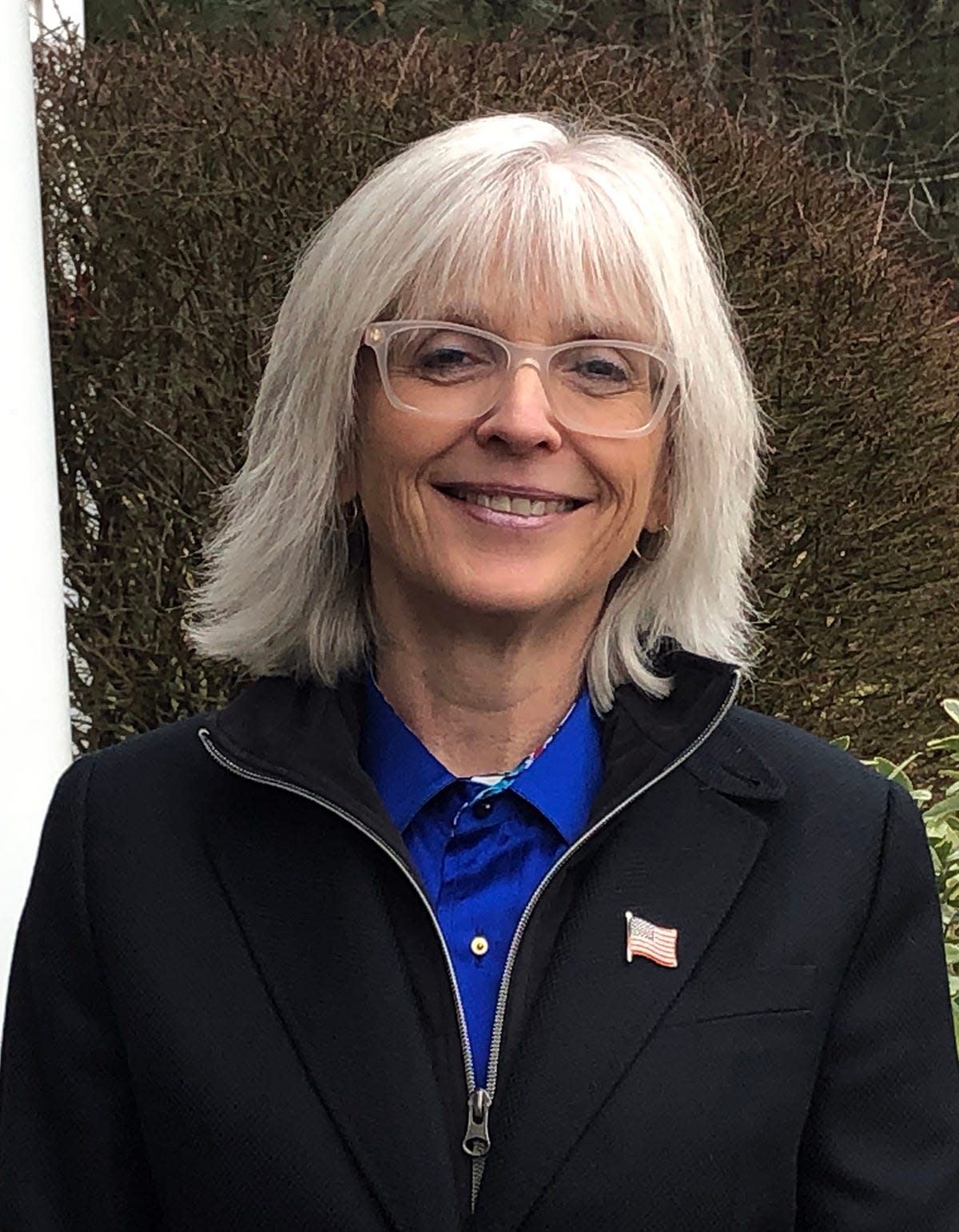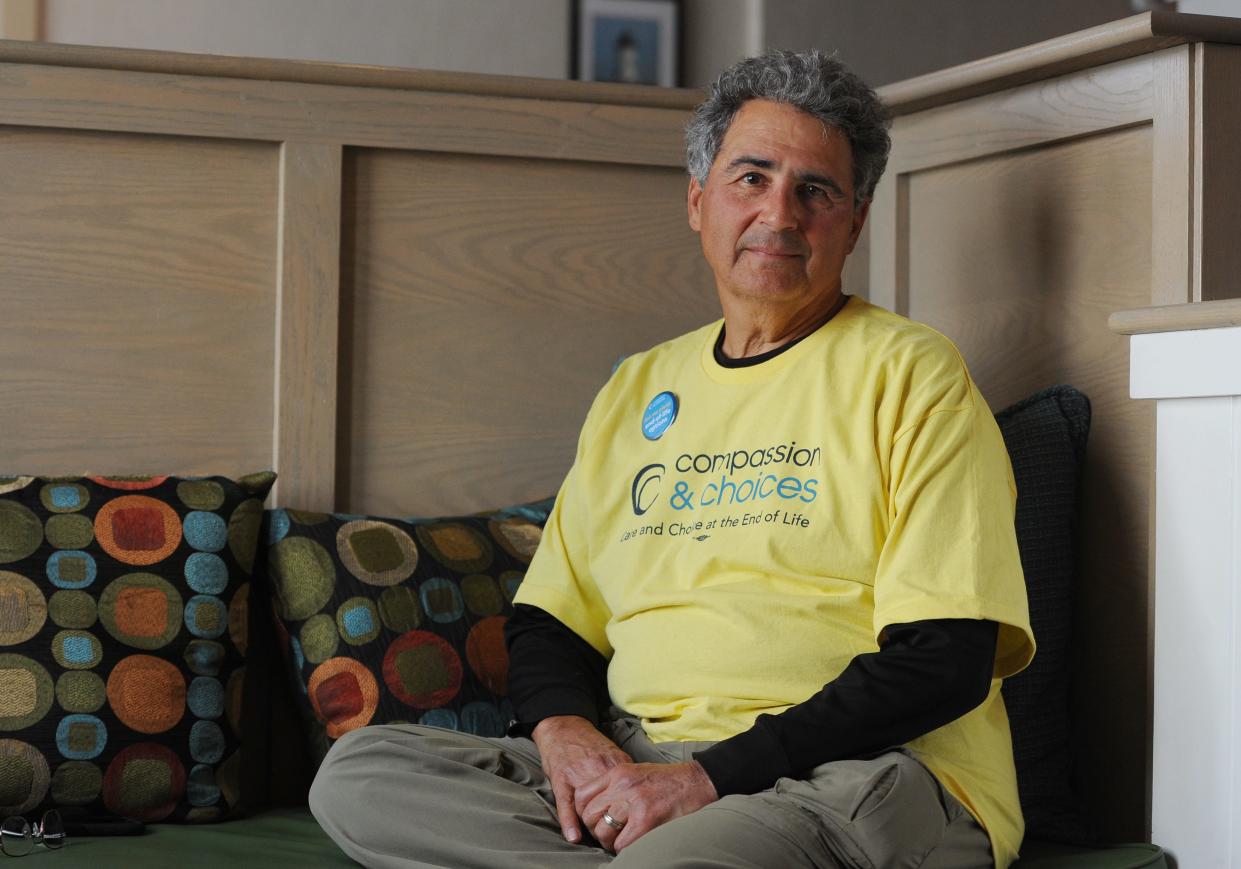New medical aid in dying bill heard on Beacon Hill. What did Cape Codders say?
BOSTON — A decade after Massachusetts rejected a ballot question that would allow medical aid in dying, the issue is back in the spotlight.
The End of Life Options Act, the subject of a legislative hearing on Friday, would allow some patients with six months or less to live and mentally capable of making a decision, the right to obtain and ingest medication to peacefully die in their sleep if suffering is unbearable.
What is medical aid in dying?
The debate dates back to 1995 when the first bill was introduced to the Massachusetts Legislature.
“The legislation was filed a couple of sessions, 2008, again in 2010, and it was decided to do a ballot initiative in 2012,” said Melissa Stacy, the regional advocacy manager with Compassion & Choices Action Network.
“It's really hard to pass something through the Legislature when a ballot initiative has failed," she said. "(It) takes some time to rebuild and so we've been working on that ever since every year we've gained additional co-sponsors on the bill.”
The effort to legalize the practice was helped last year when the state Supreme Judicial Court ruled that medical aid in dying is not protected by the state's constitution and lies with the Legislature.
According to the proposed legislation, terminally ill patients must undergo evaluation by a physician or a licensed mental health professional, and patients are required to make two separate requests for the self-administered medication. These proposals do not compel health care providers or pharmacists to participate in medical aid in dying.
The measure, also known as the Death with Dignity Act, was narrowly defeated statewide in 2012. It did pass on Cape Cod as the act passed in the region, reflecting the aging population.
Compassion & Choices played a central role in the legal battle, filing a suit against former Cape and Islands District Attorney Michael O’Keefe and then-Attorney General Maura Healey. They argued medical aid in dying represents a compassionate option to alleviate suffering during a prolonged dying process, influenced by advances in science and technology. The case initially filed in Suffolk Superior Court in 2016, sought to prevent the prosecution of doctors who practiced medical aid in dying.
The newest proposal from Reps. James O’Day, D-Worcester, and Edward Philips, D-Sharon, and Sen. Joanne Comerford, D-Northampton, follow the Oregon Death with Dignity Act, which includes several safeguards such as individuals not being eligible for medical aid in dying because of age or disability. The Oregon law has been in practice for 25 years.
What’s different about medical aid in dying this time?
Proponents said the differences in this proposal are the “rigorous safeguards” and shifts in public sentiment.
“Anyone that was concerned in terms of improper undue influence, there have been safeguards that have been added to be sure that it is actually the person's will and that that will is confirmed by medical professionals — it is with a clear and true presence of mind,” said Rep. Susan L. Moran, D-Falmouth.

Comprehensive polling has shown a positive shift in opinions within certain communities, as people continue to learn about this bill through polls, said Stacy.
“We saw some really big jumps both within the Catholic community as well as people living with disabilities,” she said. “People who self-identified as living with a disability in Massachusetts went from 60% support and up to 78% once they learned about the safeguards in the bill.”
Public sentiment about medical aid in dying mixed
Several residents testified about their personal experiences before the Legislature on Friday.
Steve Sheehan, from the Boston area, spoke about his wife’s death from cancer.
“My wife was in pain and she was scared, she begged me to end her life, but I didn't have the resources to honor her wishes because medical aid and dying is not available in Massachusetts as a result,” Sheehan said. “Shouldn't Massachusetts, a beacon for the best medical care in the country, help to set the standard for how we treat our terminally ill citizens?”
Sigrid Schmalzer's father stopped eating and drinking to “escape his incurable and unbearable illness.”
“Please try to imagine the suffering that could have been prevented if my father had been allowed to take prescribed medicine like my brother-in-law, rather than having to die of thirst over six days,” said Schmalzer. “Imagine how much safer it would have been from a medical, legal and ethical perspective if a proper process had been followed with all the safeguards that this bill contains.”
Roger Kligler, a North Falmouth resident and co-chair of the Cape Cod Action Team of Compassion & Choices, a retired physician in internal medicine, and a driving force in the state’s efforts to pass medical aid in dying bills, spoke from a doctor’s perspective.
“Many of us, myself included, have been asked on more than one occasion to help (patients) to end their suffering and they want to die because their suffering is so severe,” Kligler said. “This legislation has done that for 22% of the country, but not for us.”

John Robinson from Somerville argued, though, that the legislation does not provide rational solutions to issues such as poverty.
Robinson's father had to sell the family home in order to afford the rent for a room in an assisted living facility for a family member, he said.
“Money is being valued over people in the health care system," he said, "managed care corporations rationing health care costs under the guise of cost containment.”
Pamela Daly, who became paralyzed from a car accident at the age of 17, does not support allowing doctors to prescribe lethal doses to patients.
“We should spend our good money on working to perfect excellent physical and mental comforts and not be in the business of helping people commit suicide,” Daly said. “Freedom of choice for me means leaving my doctor out of it and leaving state laws out of it.”
The Cape Cod Times mobile app gets you to the heart of the matter — fast. Whether breaking news, sports, entertainment or weather get succinct, personalized coverage along with award-winning videos, captivating photography, and interactive user features. Download the app.
This article originally appeared on Cape Cod Times: Medical aid in dying bill in the Legislature. What is new?
